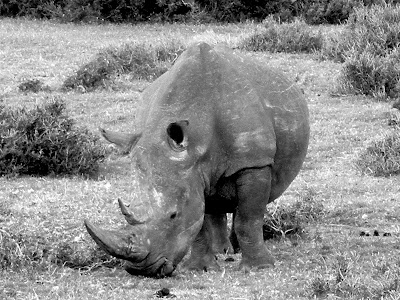South Africa's Minister of Environment, Forestry and Fisheries, Ms Barbara Creecy, has announced that South Africa has seen an increase in rhino poaching in the first six months of 2021. From January 2021 to the end of June 2021, a total of 249 rhino have been poached for their horn in South Africa. While this is higher than the number of rhino killed for their horns in the same period last year, at 166, it is less than the 318 rhino that were poached in the first six months of 2019. According to the Minister, the national lockdowns to curb the spread of Covid-19 in 2020 contributed to a decrease in rhino poaching in that year. The lifting of the stringent lockdown regulations in South Africa now seems to lead to an uptick in poaching activity in the country.
During the first six months of 2021, Kruger National Park experienced 715 poacher activities, an increase of 3.77% in comparison to the number in 2020, which was 689 for the same period. From January 2021 to end of June 2021, 132 rhino were poached for their horns in the Kruger National Park. One elephant was poached for its ivory in the Kruger National Park during this period.
From January to June 2021, 40 alleged poachers were arrested within the Kruger National Park. A total of 125 people have been arrested for rhino poaching and rhino horn trafficking across South Africa in the past six months.
Noticeable increased poacher pressure has been experienced in Limpopo, Mpumalanga and the the Free State. The Department of Forestry, Fisheries and the Environment is also monitoring the increased pressure seen on private rhino reserves in South Africa and is collaborating closely with the private sector which continues to play a significant role in rhino protection. During the same reporting period (01 January to 30 June) over the last three years, losses in private parks in South Africa constituted 15% of the total reported loss in 2019, 9% in 2020 and 30% so far in 2021.


















